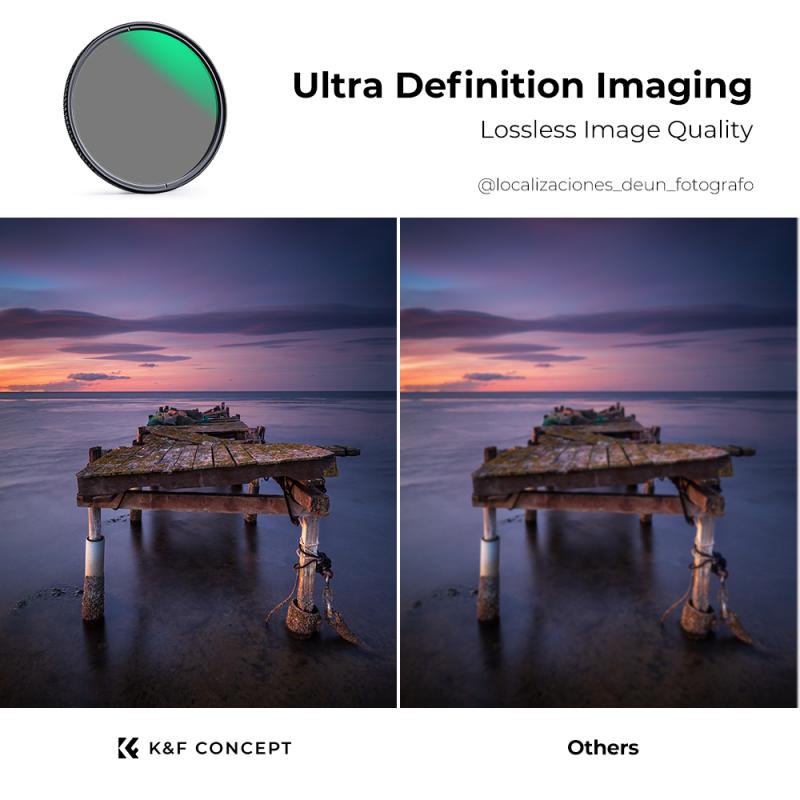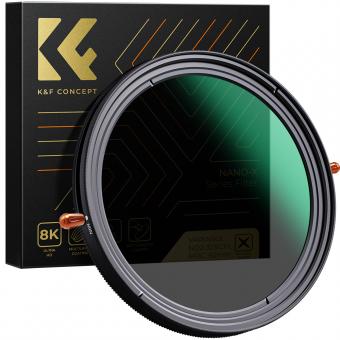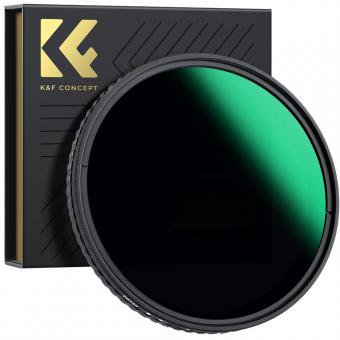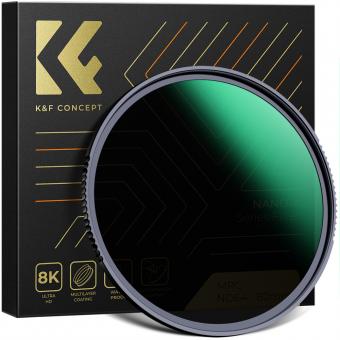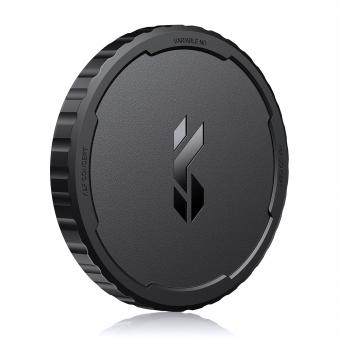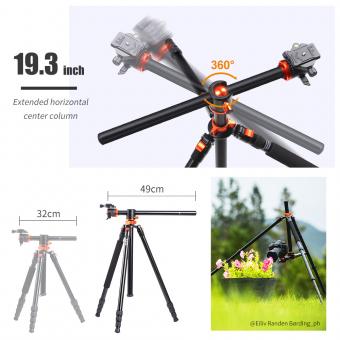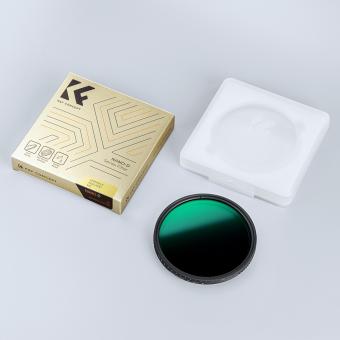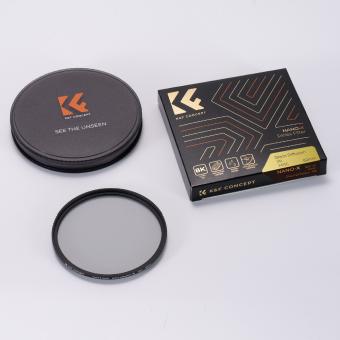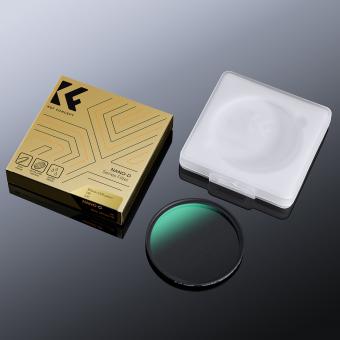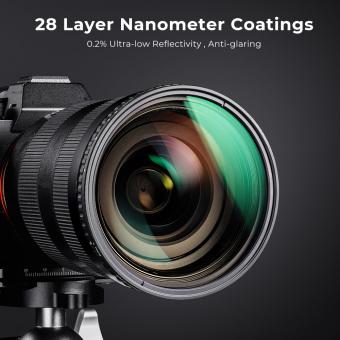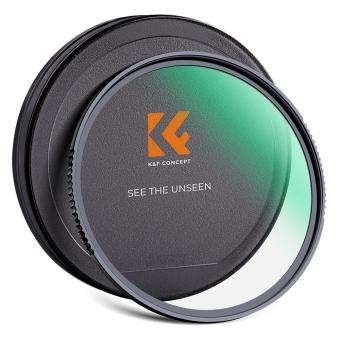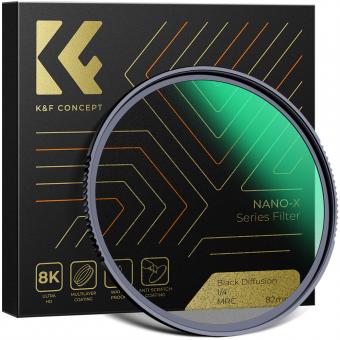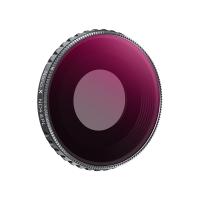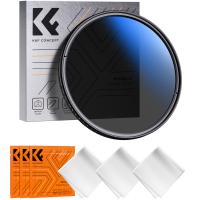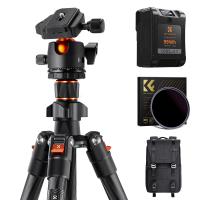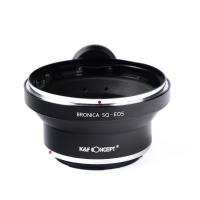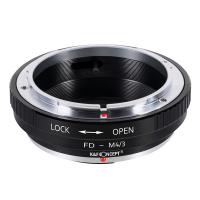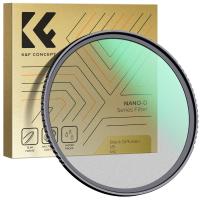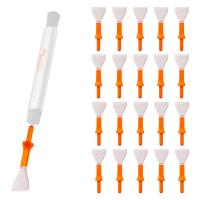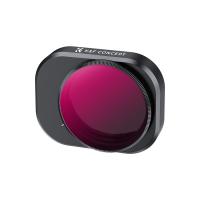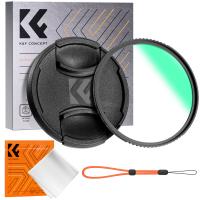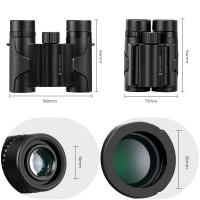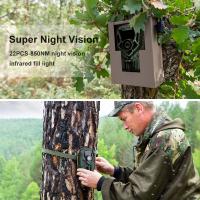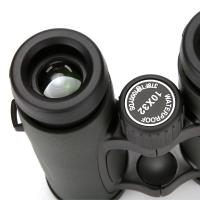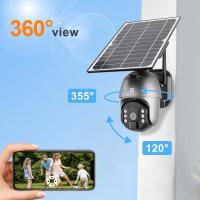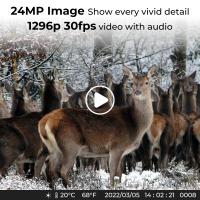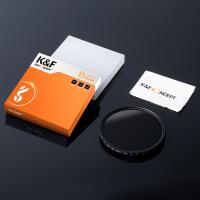Which Nd Filters To Buy ?
When choosing ND filters, it is important to consider factors such as the filter size, filter density, and the specific needs of your photography or videography. Some popular ND filter brands include B+W, Hoya, Tiffen, and Lee Filters. It is recommended to invest in high-quality filters made from optical glass to ensure optimal image quality. Additionally, consider the filter density based on the amount of light reduction you require. Common ND filter densities include ND2, ND4, ND8, and ND16, with higher numbers indicating greater light reduction. Ultimately, the best ND filters for you will depend on your specific shooting conditions and preferences.
1、 Types of ND filters and their uses in photography.
Types of ND filters and their uses in photography
ND filters, or Neutral Density filters, are essential tools for photographers looking to control the amount of light entering their camera lens. These filters are particularly useful in situations where the available light is too bright, and the photographer wants to achieve specific creative effects. Here are some types of ND filters and their uses in photography:
1. Solid ND filters: These filters come in various strengths, measured in stops, and are used to reduce the amount of light entering the lens evenly across the entire image. They are commonly used in landscape photography to achieve longer exposure times, resulting in smooth water or blurred motion effects.
2. Graduated ND filters: These filters have a gradient transition from dark to clear, allowing photographers to balance the exposure between the bright sky and the darker foreground. They are ideal for landscape photography, where the sky is often much brighter than the ground.
3. Variable ND filters: These filters offer adjustable light reduction, allowing photographers to have more flexibility in controlling exposure. They are particularly useful in situations where the lighting conditions change rapidly, such as shooting in changing weather conditions or during sunrise/sunset.
4. Infrared ND filters: These filters block visible light while allowing infrared light to pass through. They are used to capture unique and surreal infrared images, adding a different dimension to landscape or portrait photography.
When choosing ND filters, it is important to consider factors such as filter size, quality, and price. It is recommended to invest in high-quality filters to ensure minimal color cast and maximum image sharpness. Additionally, researching and reading reviews can help photographers make informed decisions about which ND filters to buy.
In conclusion, ND filters are versatile tools that allow photographers to have greater control over exposure and creative effects. The choice of which ND filters to buy depends on the specific needs and preferences of the photographer, as well as the type of photography they specialize in.
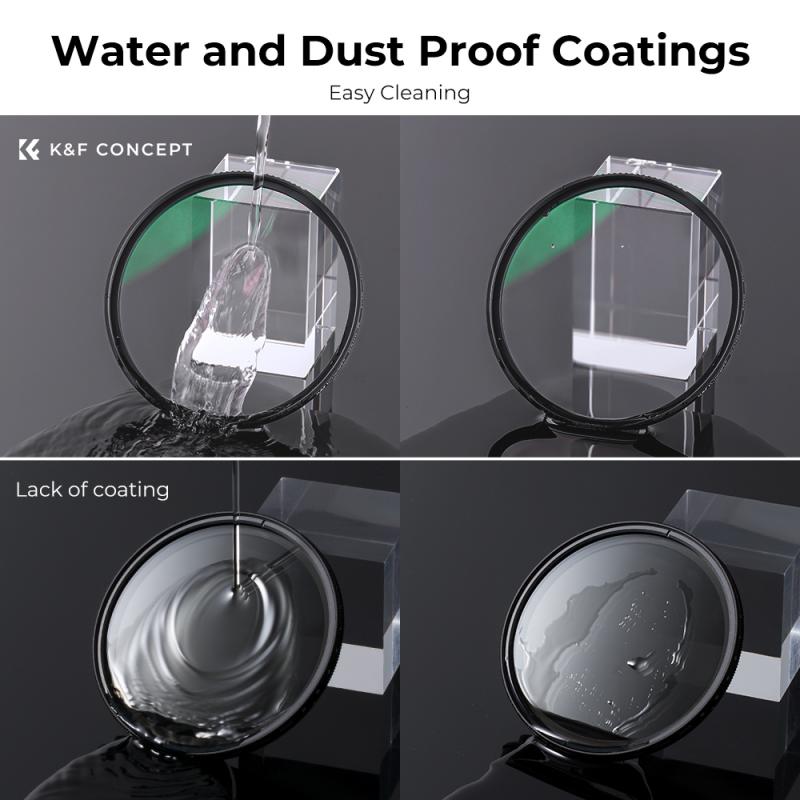
2、 Factors to consider when choosing an ND filter.
Factors to consider when choosing an ND filter include the filter's density, size, and quality. ND filters are available in different densities, such as ND2, ND4, ND8, and so on, which indicate the amount of light they block. The density you choose depends on the amount of light you want to reduce. For example, if you want to capture long exposures in bright daylight, you may need a higher density filter like ND8 or ND16.
The size of the filter is also important as it should match the diameter of your lens. Most filters come in standard sizes like 52mm, 58mm, 67mm, etc. Make sure to check the diameter of your lens before purchasing an ND filter.
Quality is another crucial factor to consider. Cheaper filters may introduce color casts or reduce image sharpness. It is recommended to invest in high-quality filters from reputable brands to ensure optimal image quality. Coatings on the filter can also affect its performance, with multi-coated filters being more resistant to flare and reflections.
Additionally, consider the type of photography you primarily engage in. If you shoot landscapes, a graduated ND filter may be useful for balancing exposure between the sky and the foreground. Circular polarizing filters can also be combined with ND filters to reduce reflections and enhance colors.
Lastly, it is always beneficial to read reviews and seek recommendations from experienced photographers to get the latest point of view on the best ND filters available in the market. Technology and advancements in filter manufacturing are constantly evolving, so staying informed can help you make an informed decision.
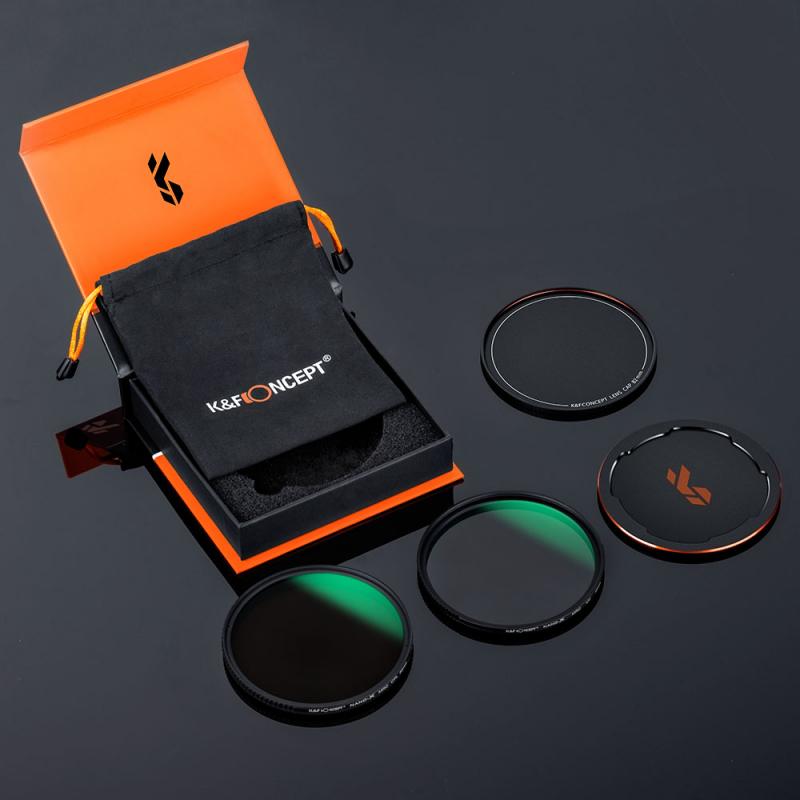
3、 Top ND filter brands and their product offerings.
When it comes to choosing the right ND filters, there are several factors to consider, such as the brand reputation, product quality, and price. Here are some top ND filter brands and their product offerings:
1. B+W: Known for their high-quality filters, B+W offers a wide range of ND filters with different densities and sizes. Their filters are made with high-quality glass and feature multi-resistant coatings to reduce reflections and improve image quality.
2. Hoya: Hoya is another reputable brand that offers a variety of ND filters. Their filters are known for their excellent color accuracy and durability. Hoya offers both screw-on and square filters, catering to different photography needs.
3. Lee Filters: Lee Filters is popular among landscape photographers for their square filter system. They offer a range of ND filters with different densities, allowing photographers to stack filters for precise exposure control. Their filters are made with high-quality resin and provide excellent color neutrality.
4. Tiffen: Tiffen is a well-known brand that offers a wide range of ND filters for various photography applications. Their filters are known for their durability and affordability. Tiffen offers both screw-on and square filters, catering to different photography needs and budgets.
5. Breakthrough Photography: This relatively new brand has gained popularity for its high-quality ND filters. Breakthrough Photography filters are made with Schott B270 glass and feature a brass frame for durability. They also offer a range of densities and sizes to suit different photography needs.
It's important to note that the latest point of view may vary depending on individual preferences and advancements in technology. It's always recommended to read reviews, compare prices, and consider your specific photography needs before making a purchase.
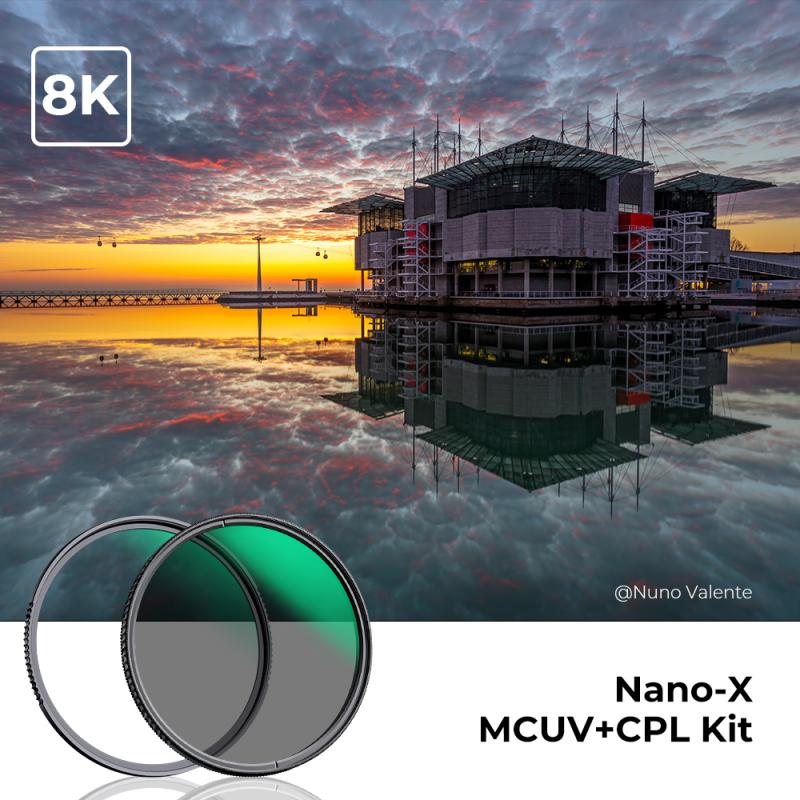
4、 ND filter recommendations for different photography scenarios.
When it comes to choosing the right ND filters for your photography needs, there are a few factors to consider. The first is the type of photography you primarily engage in, as different scenarios may require different filter strengths. Additionally, the quality and brand of the filters should also be taken into account.
For landscape photography, a popular choice is a 3-stop or 6-stop ND filter. These filters allow you to achieve longer exposures, resulting in smooth waterfalls or blurred clouds. For more extreme long exposures, such as capturing the movement of clouds over a long period of time, a 10-stop or even a 15-stop ND filter may be necessary.
For portrait photography, a 1-stop or 2-stop ND filter can be useful for shooting wide open apertures in bright sunlight, allowing you to achieve shallow depth of field without overexposing the image. This can create a pleasing separation between the subject and the background.
For street photography, a variable ND filter can be handy as it allows you to adjust the strength of the filter on the go, depending on the lighting conditions. This versatility can be particularly useful when shooting in changing environments.
As for brand recommendations, some popular options include B+W, Hoya, and Lee Filters. These brands are known for their high-quality filters that produce minimal color cast and maintain sharpness.
It's important to keep in mind that technology and trends in photography are constantly evolving. Therefore, it's always a good idea to stay updated with the latest reviews and opinions from photographers and experts in the field to ensure you make an informed decision when purchasing ND filters.
